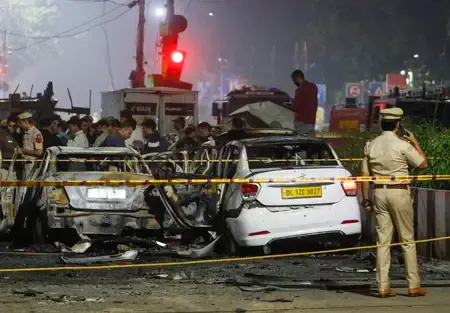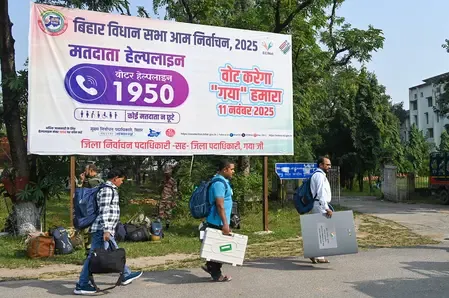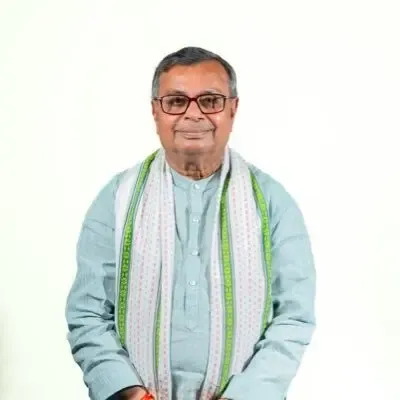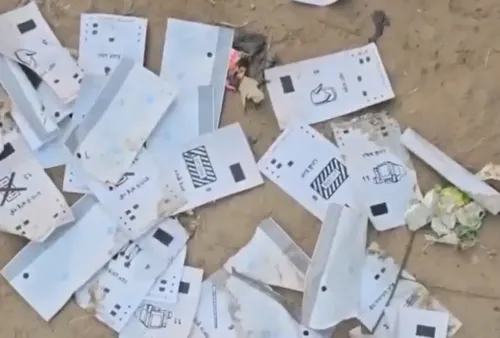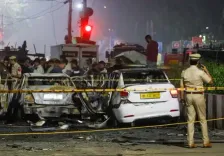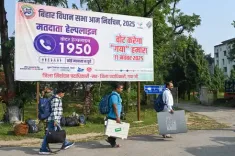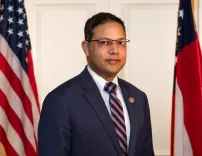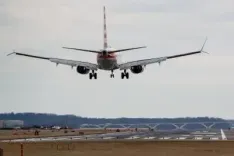Deputy CM Patton Highlights Fragmentation in Naga Society Affecting Peace and Progress
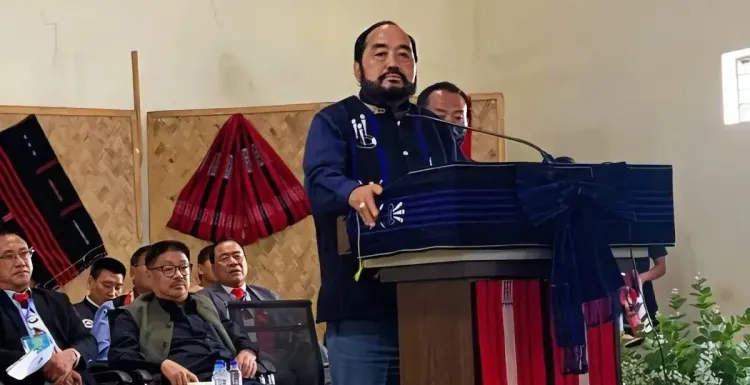
Synopsis
Key Takeaways
- Fragmentation in Naga society is hindering progress.
- Unity is essential for the development of Eastern Nagaland.
- Student communities must take a proactive role in fostering cohesion.
- Government initiatives aim to improve grassroots development.
- ENPO advocates for a separate state for Eastern Nagaland.
Kohima, April 18 (NationPress) The Deputy Chief Minister of Nagaland, Yanthungo Patton, expressed concern over the current fragmentation within the Naga society, which he believes is obstructing peace and development for the community.
Speaking as the Chief Guest at the concluding ceremony of the 8th Eastern Naga Students’ Federation (ENSF) Cultural Fiesta-cum-General Conference 2025 in Tuensang on Thursday night, he emphasized that the true power of the Naga people is rooted in unity, yet the present state of affairs shows a divided society.
Patton, who also leads the BJP Legislature Party, encouraged student groups to take an active role in fostering unity among the Nagas.
He underscored the dedication of Chief Minister Neiphiu Rio toward the development and progress of Eastern Nagaland, as well as the entire Naga population, by establishing new districts aimed at enhancing grassroots development.
As the holder of the Home and Border Affairs portfolios, Patton urged the Nagas in Eastern Nagaland to initiate progressive changes not just in their region but throughout the state.
He congratulated the newly elected ENSF team and stressed that leaders should inspire and guide society with trust and wisdom for communal betterment.
Local MLA Imtichoba acknowledged the founders of the ENSF for their commitment to the welfare of Eastern Nagas' students. He pointed out that much work remains to be done in areas like medicine, communication, and education within the Eastern Region.
He also urged students to avoid drugs and adapt to changing times, rather than solely relying on government employment for their livelihoods.
During the opening ceremony of the ENSF Cultural Fiesta-cum-General Conference on April 15, Chief Minister Rio remarked that the Eastern part of the state is often labeled as backward due to its historical neglect during British administration. He noted that it wasn't until 1957 that its headquarters were established in Tuensang.
Since 2010, the Eastern Nagaland Peoples' Organisation (ENPO) has been advocating for a separate 'Frontier Nagaland Territory' or a distinct state composed of six districts in Eastern Nagaland: Kiphire, Longleng, Mon, Noklak, Shamator, and Tuensang, home to seven backward tribes: Chang, Khiamniungan, Konyak, Phom, Tikhir, Sangtam, and Yimkhiung.
Officials noted that the state government has provided its feedback on the third draft of the Memorandum of Settlement (MoS) regarding the Frontier Nagaland Territorial Authority to the Ministry of Home Affairs (MHA) as of November 6 last year. A senior official stated that two rounds of discussions have taken place—one in New Delhi and the other in Chumoukedima, Nagaland—with significant progress made, and the government is optimistic that the ENPO's remaining concerns will be resolved. The ENPO has previously boycotted several key elections, including the 2023 Assembly polls, to press their demands.

